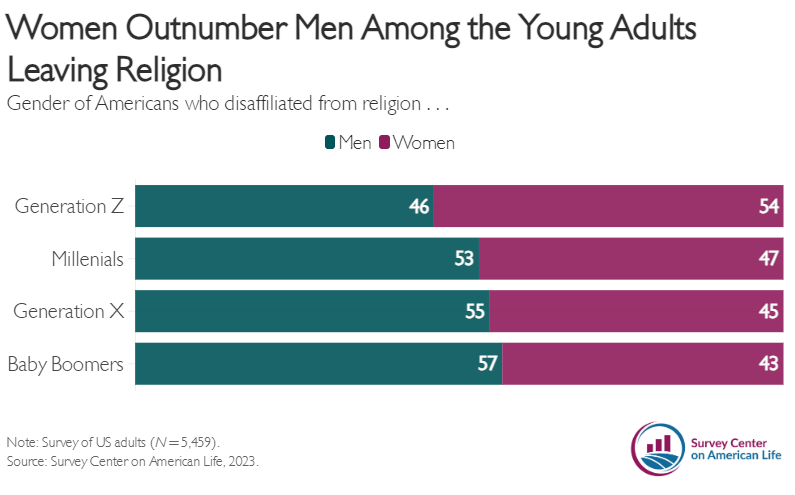

The partisan defection has been taking place among strong Democrats. “In 2008, 2012, and 2016 about 60 [percent] of Black Protestants who attended church weekly identified as Strong Democrats. In 2020, that dipped to 56 [percent] and it’s even lower in the most recent data I have—49 [percent] in 2022,” Burge writes. The movement has largely been toward the Independents, whose share more than doubled from 8 percent of the group in 2016 to 17 percent in 2022. Burge cautions that this shift will not yet put a sizeable dent in the Democratic vote among churchgoing blacks (although it did dip from 94 percent for Obama in 2012 to 87 percent for Biden in 2020). “But it does seem like this voting bloc is clearly more moderate than the party as a whole,” giving more moderate responses to survey questions about late term abortion, funding for the police, and especially immigration reform. “That’s likely always been the case,” Burge concludes, “but in the current environment with the possibility of a real racial realignment happening, I wouldn’t be surprised to learn if Biden does demonstrably worse among this voting bloc than in prior elections.”

Cox and Hammond add that “younger women are more concerned about the unequal treatment of women in American society and are more suspicious of institutions that uphold traditional social arrangements.” In the 2023 survey that the team conducted, nearly two-thirds (65 percent) of young women said they do not believe that churches treat men and women equally. The researchers add that young women are more educated than men their age and report greater professional ambition and concern with personal success and growth, making religion and family life lower priorities. “The result is that young women today, at least on some measures, are less religious than young men,” as reflected in the survey’s finding that nearly four in ten (39 percent) Gen Z women identify as religiously unaffiliated compared to 34 percent of Gen Z men. Cox and Hammond conclude by pointing out the much larger generational differences among women compared to men. While Gen Z men are more religiously unaffiliated than Baby Boomer men by 11 percentage points, there is a 25-point difference among women, with 39 percent of Gen Z women being unaffiliated compared to only 14 percent of Baby Boomer women.
(The study can be downloaded from: https://www.americansurveycenter.org/newsletter/young-women-are-leaving-church-in-unprecedented-numbers/)

Source:
https://www.flickr.com/photos/catholicism/8561266141
(The survey can be downloaded from: https://www.pewresearch.org/religion/2024/04/12/majority-of-u-s-catholics-express-favorable-view-of-pope-francis/)